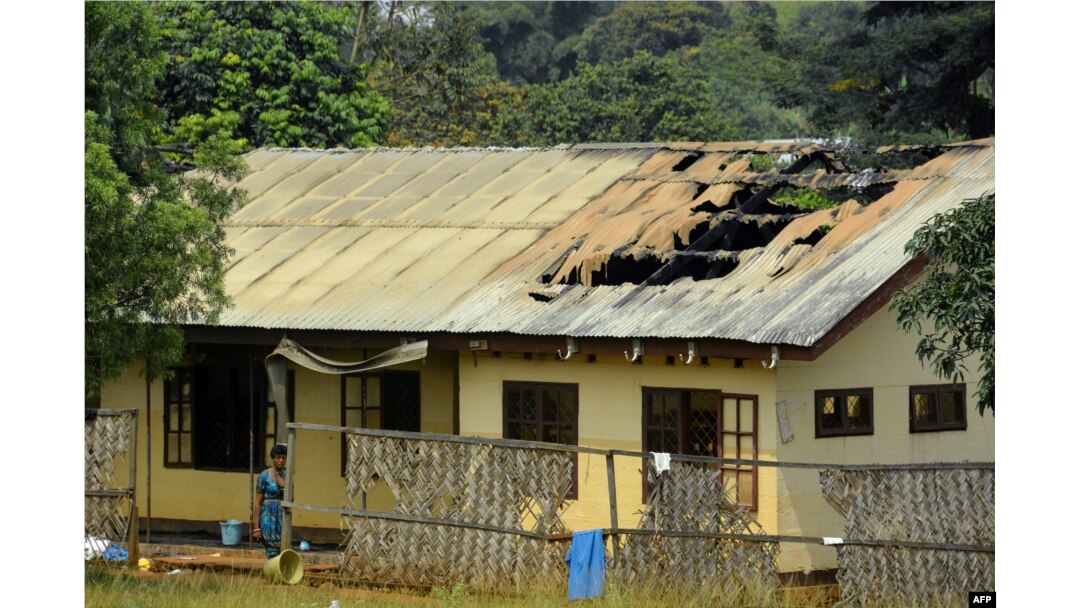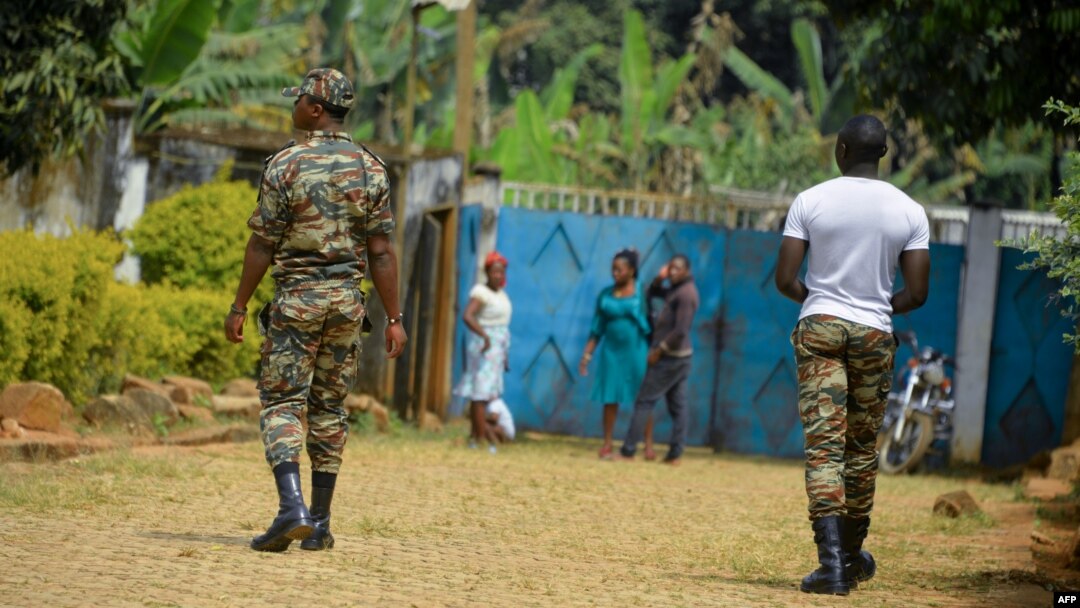Cameroon has launched a multi-million dollar emergency humanitarian assistance plan for hundreds of thousands of its citizens who the government says live in precarious and life-threatening conditions in Cameroon and Nigeria due to the ongoing conflict with armed separatists of Cameroon’s Anglophone regions seeking to break away from the predominantly French-speaking country. All Cameroonians have been called upon to contribute to the fund.
Cameroon Prime Minister Philemon Yang says the $23 million fund was ordered by President Paul Biya after more than a hundred Cameroonians, 84 soldiers and police have been killed, and hundreds of thousands of the country’s citizens now live in precarious and life-threatening conditions.
Yang says the fighting has internally displaced 74,000 people who are facing famine along with disastrous health conditions, and that 21,000 others have fled to Nigeria and should be brought back home.
"Our emergency humanitarian assistance plan aims at providing emergency humanitarian assistance to affected people; ensuring the socio-economic reintegration of the affected populations; reconstructing destroyed infrastructure, housing, food and basic needs, health care, education. This action will include assistance and visits to show compassion to Cameroonian refugees in Nigeria," Yang said.
The prime minister said people living outside of Cameroon instigate armed youths under the influence of drugs to kill, kidnap and rape, adding that many teenagers have been recruited as child soldiers. He said famine was looming in English-speaking areas since most farms and cattle ranches had been abandoned, and most businesses closed.

FILE - A woman stands outside a damaged school's dormitory, after it was set on fire, in Bafut, in the northwest English-speaking region of Cameroon, Nov. 15, 2017.
Yang said he was counting on government resources and contributions from Cameroonians and the international community to fund the emergency humanitarian assistance plan.
Reactions have been varied. Many people say it is a good initiative to bring back thousands who have fled and reconstruct their destroyed towns and villages.
But Father Appolinarius Nkeng of the Catholic Church, who has been providing food aid to displaced populations and is calling for an end to the violence, says the government should first of all call for a cease-fire and initiate dialogue with the armed separatists.
"The option and the way out is proper and organized dialogue. But I think it cannot be done in the manner politicians are talking about. You cannot have unity and peace without justice."
Schools have been closed in the English-speaking northwest and southwest areas of Cameroon since November 2016 when lawyers and teachers called for a strike to stop what they see as an overuse of the French language.
Separatists took over, calling for the independence of the English-speaking from the French speaking regions. Cameroon’s government reacted with a crackdown and several dozen leaders of the strike were arrested.
Last week, human rights group Amnesty International criticized Cameroon’s government for using what it said was unnecessary and excessive force that frequently placed civilians in the web of violence and desperate conditions.


